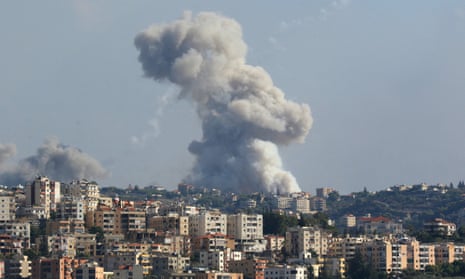At least 492 people were killed and over 1,600 injured in Israeli airstrikes across Lebanon on Monday, marking the deadliest assault since the 2006 conflict. As Israel's military escalates its offensive, thousands of families have fled their homes, with military spokesperson Daniel Hagari reporting strikes on 1,300 Hezbollah assets across the country.
Hagari outlined the nature of the strikes, targeting "strategic munitions" hidden in civilian areas, including cruise missiles and mid-range rockets capable of reaching significant distances. He referenced a prior incident in July that killed 12 children, attributing blame to Hezbollah, which has denied responsibility.
Lebanon’s Health Ministry confirmed the death toll, including 35 children and 58 women, as strikes continued in southern Lebanon, Beqaa, and Baalbek. In a televised address, Israeli Prime Minister Benjamin Netanyahu urged Lebanese civilians to evacuate, emphasizing that Israel’s conflict is with Hezbollah, not the Lebanese populace.
Amid rising tensions, Hezbollah's second-in-command declared a "battle without limits," launching significant strikes into Israel. In response, Israel's Foreign Minister called on the United Nations Security Council to condemn Hezbollah's actions, particularly the attack on Haifa, while Israel's Iron Dome intercepted several incoming rockets.
As world leaders gather in New York for the UN General Assembly, the escalating violence in the Middle East is a primary topic. Yet, a clear strategy to de-escalate remains elusive.
Nearly a year of conflict in Gaza has strained Israel’s economy, with poverty rising even in regions far from the fighting. Over 100,000 Palestinians previously holding work permits in Israel are now facing restrictions, and labor shortages are becoming acute, particularly in construction. Reports indicate that only 8,000 Palestinian workers have been exempted from entry bans.
Tourism has also plummeted since the conflict escalated, with Israel welcoming only 500,000 tourists from January to July—a significant decline from previous years. Many in the tourism sector, like freelance guide Hilik Wald, have seen their livelihoods vanish, leaving them reliant on government assistance.







